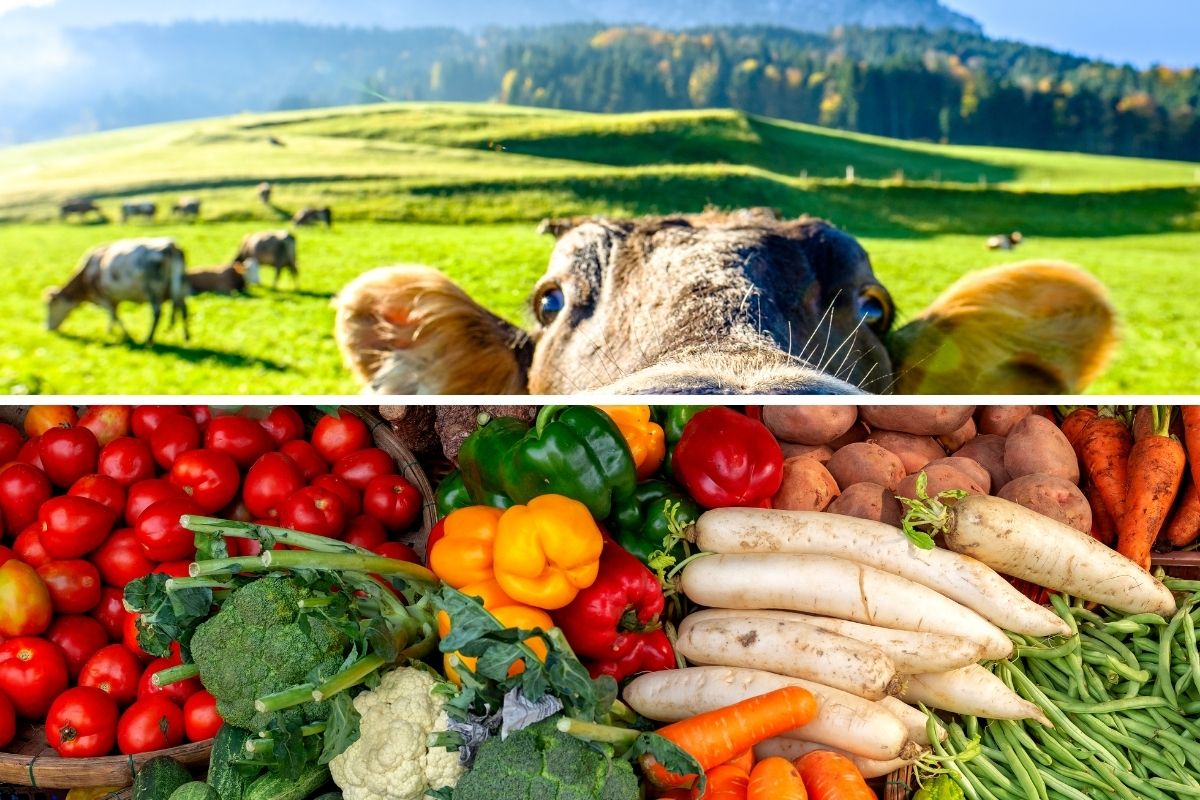
If you’ve read previous posts (1, 2), you’ll know that I made a decision to be a vegan and I am working on my diet (moving to a whole-foods, plant based diet)
It is time therefore to parse out these concepts a bit.
A whole-foods plant-based diet is a diet that consists primarily of whole foods (i.e. foods in their original form with very minimal processing) and plant-based – i.e. nuts, seeds, fruits, vegetables, legumes and whole grains. Such diets don’t always exclude animal products but do tend to reduce them significantly. Thus a whole-foods, plant-based diet is not necessarily vegan.
Veganism however is an ethical stance and lifestyle “which seeks to exclude—as far as is possible and practicable—all forms of exploitation of, and cruelty to, animals for food, clothing or any other purpose; and by extension, promotes the development and use of animal-free alternatives for the benefit of animals, humans and the environment.”
A vegan, will, by the nature of their lifestyle choice, eat a ‘plant-based’ diet but it won’t necessarily be ‘whole-foods’ or even healthy. It is possible to eat a vegan diet based primarily around processed foods. So to say one is eating a ‘vegan diet’ isn’t quite correct because it doesn’t really tell you anything about the diet other than it excludes animal products. A vegan diet could be based around chips and oreos or even be a low-carb atkins diet.
Why is this distinction important?
There are situations in which it is dangerous to conflate the two.
Say I want to improve my health and I’ve heard that a ‘vegan diet’ is one way to do this. So I set about removing animal products (i.e. meat, dairy, honey). If I simply focus on the exclusion component, I might actually run the risk of ending up with a worse diet. For example, I may not get enough calories. I might not get enough food variety. I might end up loading up on processed foods.
In this example, I have conflated a vegan diet with a ‘healthy’ one. I have made the assumption that simply removing the animal products is what makes a vegan diet healthy [note: to an extent this is true, if you are eating a lot of red or processed meats, then the chance is that their removal will be health promoting].
But in fact, what really makes a ‘vegan diet’ a healthy one is that the animal products are replaced with highly nutrient dense whole plant foods. This means an increase in fruits, vegetables, nuts, seeds, whole grains and legumes. A well planned whole-foods, plant-based diet, based around a range of these different foods can be a very health promoting diet.
When I decided to go vegan, because of ethical and environmental reasons [subject of a future post], I knew that I would have to pay attention to ensuring I ate a high quality diet. I knew (from experience) that the exclusion of foods is not what really makes a diet healthy. It is what we add in that makes it healthy. With this in mind, I am working with a dietitian to make this happen. My doctor also takes regular blood tests so I can monitor my health outcomes.
In switching to a whole-foods, plant-based diet, the range of foods that I am eating has increased. Yes, meat and dairy have gone, but I am now eating a wider range of fruits, vegetables, legumes, nuts, seeds and wholegrains than I was before. And that is still taking into consideration the changes I have made for FODMAP reasons (also another future post).
Because I knew that the process would take effort, I am writing about here in case you have also made a similar decision and perhaps my experience can help you along the way.
Takeaway message
If your goals are health-based (and not specifically animal rights or environment), then I encourage you to read up on whole-food, plant-based diets. You should also however consider looking into other diets that don’t exclude animal products but have shown to have health promoting effects (e.g. Mediteranean diet, DASH diet). If you are serious about using diet for health, then you should get your doctor and perhaps a dietitian involved for some testing and advice. It doesn’t need to be onerous. Just the occasional GP appointment and blood tests to look for any nutritional gaps and a few sessions with a dietitian to customise food choices to your lifestyle and goals.
If your goals are more ethical and environmental in nature and the lifestyle choice of veganism makes sense to you, then I implore you to not just stop at the removal of animal products from your diet, as simply making one’s diet ‘vegan’ doesn’t automatically make it healthy. You too will need to educate yourself on plant-based nutrition. You may need even more medical and dietetic advice to make sure you are getting the necessary nutrition for good health. One of my favourite online nutritional education sites is https://nutritionfacts.org/ which promotes a whole-foods, entirely plant-based diet. You’ll learn a lot from that site about how to eat a health promoting diet that contains no animal products.
Note: these blogs about my transition to a plant-based diet and vegan lifestyle are not intended to suggest that you should do the same. I write about them because of the interesting dynamics that come with making significant changes to one’s lifestyle. For example, changing one’s diet involves lots of research and advice-seeking to ensure healthy choices. Changing one’s behaviour to be more consistent with one’s moral values also requires reflection and challenge. Of course I would be very happy if others also sought to change their lifestyle in order to reduce suffering and environmental impact, but I understand such changes have to happen at the right time for someone.

